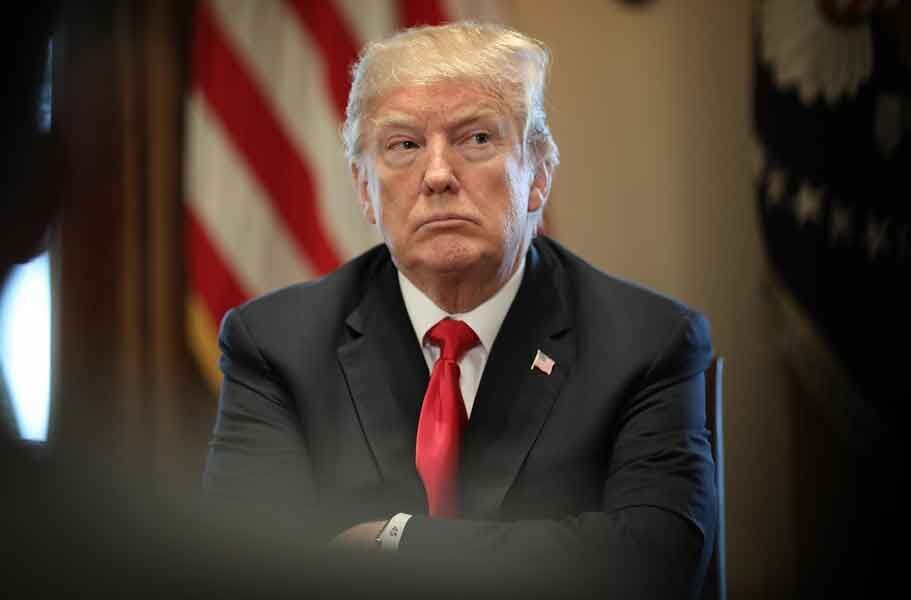In an interview with the Islamic Republic News Agency (IRNA) on Tuesday, Esfandiar Khodaei pointed to Iran's measure to shoot down the United States Global Hawk drone, which had infiltrated the airspace of Iran, and said that Trump's response to the fall of the drone, for the warmongers was disappointing. The US government is not currently seeking a war with Iran. Iran's puzzle is more complicated than to be resolved by a military strike.
Noting that the US is entering a war when it can win in the short-run, he underscored that if the war breaks out under the current conditions, the US allies, including Israel and the United Arab Emirates, will pay a heavy price. When Israel is vulnerable to Hamas rockets and is heavily threatened by Hezbollah missiles and Lebanese bases in Syria, Netanyahu is not even following the US military war against Iran.
The foreign policy analyst went on to say, "The United States is now focusing on Iran's economic sanctions until the Iranian government is weak enough and there is the prospect of victory with the least cost to the United States."
Referring to the approaching date of the 2020 US presidential election, Khodaei said, "America's election is near, and the American public does not welcome the war with Iran, especially since Iran has signed the nuclear deal, and the government has refused to refrain from implementing this agreement.
Referring to the role of the Iranian defense and regional capability in the US reaction, he stated, "In the history of the United States, there was not even a single case in which the country entered a military conflict with a fully-prepared state like Iran. In all wars, the prospect of victory is clear and completely available. For example, the Bush administration in the first Iraq War after Saddam's withdrawal from Kuwait did not continue the war because it was costly and probably too long, so the United States severely sanctioned Iraq for 10 years, to the extent that In 2003, the victory over Saddam was very easy, and the same, even though George. W. Bush's prediction of Iraq did not come out right after Saddam's removal.
The expert highlighted that the Americans know that entering a full-scale war with Iran will be very costly, reiterating, “They are seeking to undermine Iran by resorting to severe economic sanctions, and if it reaches the goal, the ground for military action will be provided.
He stated that today Iran had two major differences with Iraq under Saddam's rule, saying, “Saddam attacked Kuwait, setting the stage for a global coalition against itself, but Iran has been in the position of superiority in terms of global logic, with admittance of the JCPOA and it is the United States has withdrawn from the nuclear deal. Secondly, with missile power and allies like Hezbollah and bases in Syria, the current Iran is different from Iraq during the era of the former Iraqi dictator Saddam Hussein.
Pointing to the efforts by some White House officials to fight a limited war with Iran, the expert on American affairs said, "After winning the 2020 election, Trump is likely to seek the pretext for a multi-day air war and the bombing of military and nuclear facilities and the Iranian oil and gas infrastructure and then the cease-fire and the raise of the flag of peace. But the problem is that, given Iran's missile power, Iran is not handcuffed in the short-term war.”
He added, “US allies like Israel and the Emirates will pay a heavy price for such a war, so they will not welcome such a plan at this time.”
Answering a question on how much the threat of war with Iran is to force Tehran to negotiate with Washington? he stated, "Iran's puzzle is more complicated than to be solved by a military strike. Threat of war in the short term will affect public opinion, but after a while everyone will find that the United States is not currently in a position to engage in a serious war with Iran."
The foreign policy analyst noted that Iran's sanctions also cost Americans a long run because the United States must give certain concessions to other states for their cooperation. It is for this reason that the Obama administration negotiated with Iran by understanding it. The Trump government is also coming to the same conclusion that the JCPOA was a good deal for both sides.
9455**2050
Follow us on Twitter @IrnaEnglish



Your Comment